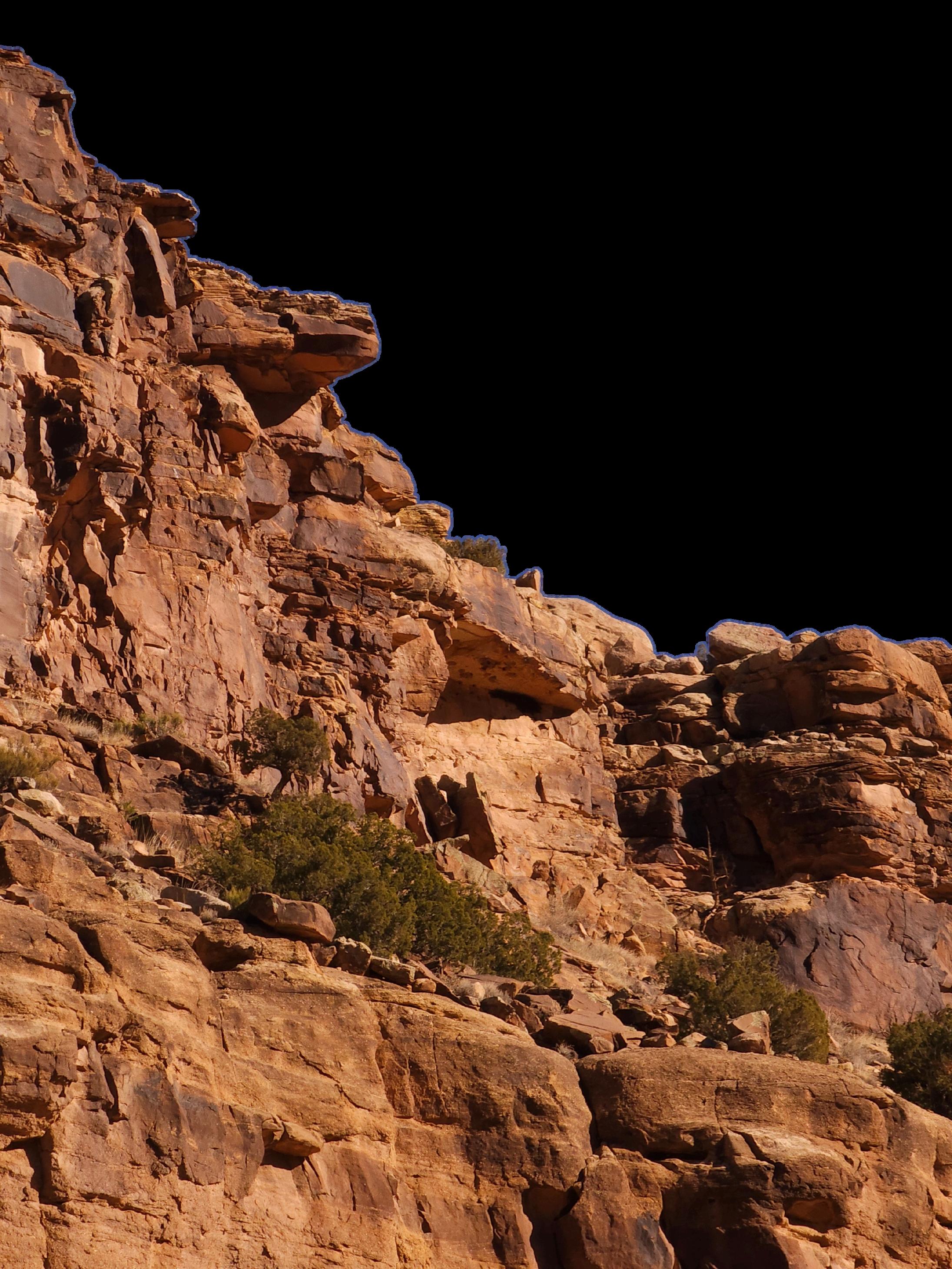




Senior Editors
Camille Kuroiwa-Lewis
Valencya Valdez
Editors
Catherine Leach
Clara Smith
Branna Sundy
Amineh Zakarneh
Advisor
Prof. John McDonald
Cover Design
Valencya Valdez
Cover Image
Joaquin Valencia
Writers Logo
Designed by Reece Smith
Writers Photo
Natalie Gordon
Spring 2025
University of Portland
I Am A Goose; I Am A Flock of Geese
Golden Egg brand new lungs
Birds Ballad
Harpist Heart
Vignettes for August
picture perfect
space dust
Tidepool
Mi Copa
Hidden Gems
A nervous bride talks to God
Restoring Forever
Nevsky
Elliott
Stained
A Love Letter to Nature
remnants of those that left behind i promise i was here where sand meets sky
The Breath Between Us
The Great Wall
Siesta
Sins of my mother
Kaylee Monahan
Branna Sundy
Diana Hutchings
Amanda Meyers
Mollie Klingberg
Francy Wentker
Emily Dixon
Elizabeth Dimitrova
Catherine Leach
Frank Bruno
Branna Sundy
Emma Callanan
cece
Jae Renette
Catherine Leach
Elizabeth Dimitrova
Elizabeth Dimitrova
Ana Carolina Seisdedos
Mary Jensen
Emma Becker
Joaquin Valencia
Aly
Joaquin
It takes a dedicated effort to make sense of our world. The pursuit of meaning feels at times like both an act of discovery and at others, an act of creation Spring is a season that reminds us of both: the endless rhythm of death and rebirth, of things breaking down only to emerge anew. We look for patterns to ground us and to assure us that there is order in the chaos In this pursuit, we find comfort in the unfurling of cherry blossoms, the spiral of a fern, the synchronized motion of birds in flight each natural wonder is a testament to how life moves forward in ancient and immediate ways In other words, we find miraculous reasons in the mundane because we have to. Because in the face of uncertainty, we hold onto whatever reminds us that something larger than ourselves is at work, even if we can’t fully grasp it
When choosing the theme for this edition, we sought a concept that would reflect the hidden and intricate connections between nature, mathematics, art, and both the divine & earthly human spirit. Sacred Geometry is the language of patterns of the spirals, tessellations, and ratios that shape the world as we know it. These forms present in both the natural and the divine – reveal an order that entwines meaning with structure, the physical with the metaphysical. We chose this theme because it speaks to the ways we move through the world, searching for answers and often humbled when we find only more questions instead.
Our contributors took up these eminent questions head on, illuminating the sacredness of our breathing world through their diverse perspectives Visually, we travel through Joaquin Valencia’s sweeping deserts “where sand meets sky” and Frank Bruno’s “picture perfect” towering mountains, where nature dwarfs us. Emma Callanan’s neon “Tidepool” and Ashley Marheineke’s vibrant fungi in “nature’s warts” both reveal entire microscopic worlds. In prose, Jae Renette’s “Hidden Gems” uncovers a story filled with mystery and nostalgia, seeking the unknown within our families and homes In poetry, Mary Jensen’s “Stained” reflects our pleas for higher powers to guide us, and Elizabeth Dimitrova’s “Nevsky” explores the awe-inspiring construction of sacred spaces that hold us in reverence
This year also marks the first where the Editorial Board awarded The Tom and Jane Hogan Annual Poetry Award to two outstanding poems. Robin Aughney’s arrangement in “Our Basal Eyes” earned both Editors’ Choice and the first scholarship for its intricate, sunlit scenes beneath a coastal oak. Kaylee Monahan’s “Oasis,” which earned the second scholarship for its craftsmanship and detail, uses introspection to capture the quiet wonder of a delicate moth.
In the end, we don’t need to fully understand something for it to move us. Some truths reveal themselves slowly and covertly, at times completely latent to even the most careful of eyes We hope this issue offers you something both beautifully ordinary and extraordinary all at once, through the visions of our wonderful creative student community on campus. May it inspire you to look more closely at the patterns and connections around you, and remind us that there is perfection in the inexplicable and reason even in the most uncertain of times.
With infinite love,
Valencya
Valdez
& Camille Kuroiwa-Lewis Writers 2024-2025 Senior Editors
“Geometry defeats time and its accidents; time and its accidents, in turn, are resolved in music and poetry.”
- Octavio Paz
The House of Presence (1967)

Frank Bruno

Robin Aughney

moment once
The first that of my life I was –woke or remembered, i I was a toddler lying on the grass in the backyard Beneath our neighbor's towering Magnolia tree, the grass grazed the nape of my neck as I opened the sun-warmed lids covering my eyes Was this the moment i became an I? Was this before you were –a You? The sun filtered and flowed through the gaps in her leaves, forming rivers of light that danced inside between her branches The space them read like the interludes of words on a page, Sprawling vines of void and breath
A Robin’s movement caught my eye as he hopped from one seed pod to the next, their blazing pearls earthen bursting through membranes. I knew then –we shared a name. In the second grade, I spent recess curled in the roots of a coastal oak, my nose in a book and my back to the bark I felt it then –and knew the feeling for what it was: the inherent, inherited, aching – burn, a softly screaming, need – to breathe into and from someone. To touch Life without Hesitation A space before my silhouette unblurred, a time before hard lines never sleep in my own bed, or around people. Instead, I would sink into the floor with my dog in the burnt out afternoons, and sync the pace of my breath to hers. I’d count the rise and fall of her side with my palm, and listen to the sounds of movement, muffled by sun and made passive with And the dust danced between the Her gaze held Mine –In our basal eyes. sleep. beams, where
I could
Kaylee Monahan
a moth roosts on my door three days a golden spiral of veiny beige and charcoal wings like a labyrinth, swathed by its creamy yellow coat camouflaged hereto in colossal wonder.
I think of Virginia Woolf and her essay ‘The Death of a Moth’ yet my petite neighbor is fully alive temporarily perched like a stamp in my commute a mosaic of hallowed minutiae
She’s floating in the sky now– eye level at last as She latches onto my door once more, twice, thrice, She quivers in the vapor of my breath I see you, little creature. You tiny, tiny, being.
each day I fear her vanishment but I’m elated by her presence as I curl the knob manufactured wood, dressed in makeup of brown paint, enlivened by her grasp, a gentle oasis from barren winter trees
a moth remained in my periphery three days a fishbowl lens of curious beings until abandonment, leaving my door a morose block of wood once more lifeless in corporeal form, we reel from her absence where are you, cohabitor?
please return to me
Branna Sundy
LIGHTS UP.
A mess of a dorm room/studio apartment. Bed unmade, books scattered, discarded wrappers, overflowing trash can, unwashed dishes, heaps of clothes, socks on the floor.
ELLIE enters, dressed for the day, with cleaning supplies. Paper towels, either a functional sink or water in a bucket, soap, disinfectant, a trashbag, a rag, a vacuum.
There are two magnolia trees in my parents' backyard. One long dead, the other blooming. Its branches reach out across a wide stretch of the grassy slope, framed by the black mulch and the wooden fence behind it. The other: shriveled. Skeletal, but not in the cool, clawing-fingers kind of way. More like Sylvia Plath's fig tree, the fruit rotting off the branches before my hungry eyes, but the figs aren't figs, only crinkly dried-up magnolias. It's been like that since I can remember.
ELLIE makes her bed.
I think I feel rotten when I'm home. I slide back into my fifteen-year-old self and I lie to my parents and I sneak sugar under my bed and I can’t find the strength to wake myself up and I feel trapped I feel caged & guilty & arrogant & ugly
ELLIE begins to clean. Puts trash in a bag, wipes the floor, wipes any dusty/dirty surface, separates laundry into dirty and clean, puts dirty laundry in a basket, folds/hangs up clean clothes, washes & dries dishes, organizes books.
so ugly, deep down ugly, rooted in my gut ugly ugly ugly, unshakeable unwashable unsalvagable ugly, ugly that’ll never come off, never come out, no matter how hard I scrub, no matter how many tissues or towels or wads of toilet paper I wipe it up with, no matter how much I shampoo & condition & wash & dry, no matter how much cleanser I rub on my face, the razor bumps under my armpits won’t go away, my teeth stay yellow, it stays and it stays and it stays, always there, everywhere I go.
ELLIE pauses, breathing heavily, wipes her forehead with the back of her hand, then scrubs at one spot on the floor obsessively.
It’s the burnt cheese I can’t scrape out of the toaster oven, it’s the filth in the bottom of my water bottle that I can’t reach, it’s the stench of the garbage disposal and the mold in the sink and the dried outlines of waterdrops on the shower door and the smears of excrement in the toilet bowl and the crumbs in my bed and the endless endless wrappers, discarded trash, the baby clothes taking up half my closet, the shoes that pinch my toes, the rips in the shapewear and the underclothes and the crotch of the leggings, the broken pencils, the empty pens, the shitty erasers, the papers and papers and useless papers of dull homework and bad poetry and empty feeling in the desk and the closet and the dresser and under the bed and behind my eyes and in the back of my head
Throughout the following, ELLIE punches her pillow. the trash the trash it's filth and I can't get rid of it, it stays, it comes back over and over again, the thousand-headed hydra, the disorder in me all reflecting back at me from the corners of everything
ELLIE stops.
and I let it consume me, the unassailable truth:
ELLIE looks in her mirror.
I’m ugly.
A D20 catches her eye.
And then, amidst all of the mess, I find my dad's D20 that he let me borrow to soothe my anxiety. Fidgeting with it helps. And, just for the hell of it, I decide to make a persuasion check. (aside) That's Dungeons and Dragons, for those of you who aren't nerds.
Let's see if I can persuade myself to get out of bed. Difficulty of 10. Just a flat roll.
ELLIE rolls the die & reads out the number.
If it's under 10:
Not today. Alright. I sleep a little longer and try again when I wake up.
If it's a nat 1: Wow. Thanks, universe. I doomscroll for hours, fall back to sleep, miss three classes, and forget that I'm a human being.
If it's over 10: Okay, not bad. I get out of bed. Maybe I get dressed. Maybe I wash my face. Maybe I eat something that isn't stale ramen.
If it's a nat 20: (gasps & yells ecstatically, whooping)
That's a NAT FUCKING TWENTY, my guy! Depression begone! For a day.
And I keep doing this.
ELLIE puts the die in her pocket, then brushes/braids/smooths out her hair throughout the following.
It's random, and nonsensical, and I don't believe in fate. You wonder, if I have the will to get out of bed when I roll an 18, why don't I have the will to get out of bed when I roll a 2? Why not change the difficulty? Why not keep rolling till I get a number that gives me enough motivation to fix my life?
ELLIE sets down anything in her hands and sits on the end of her bed.
I don't know. I wish that's how it worked. I wish I could do it every day. I try to choose how I live my life, and sometimes my body decides that's not how things are gonna go. Sometimes my willpower's stronger than my exhaustion. Sometimes the exhaustion's stronger.
ELLIE takes out the die from her pocket.
I don't know where Ellie ends and the problems begin. I don't think we can be divided. All I know is that if there's a chance it helps me find the will to keep living, I'm gonna keep rolling this nerdy-ass die.
ELLIE rolls.
END OF SHOW.

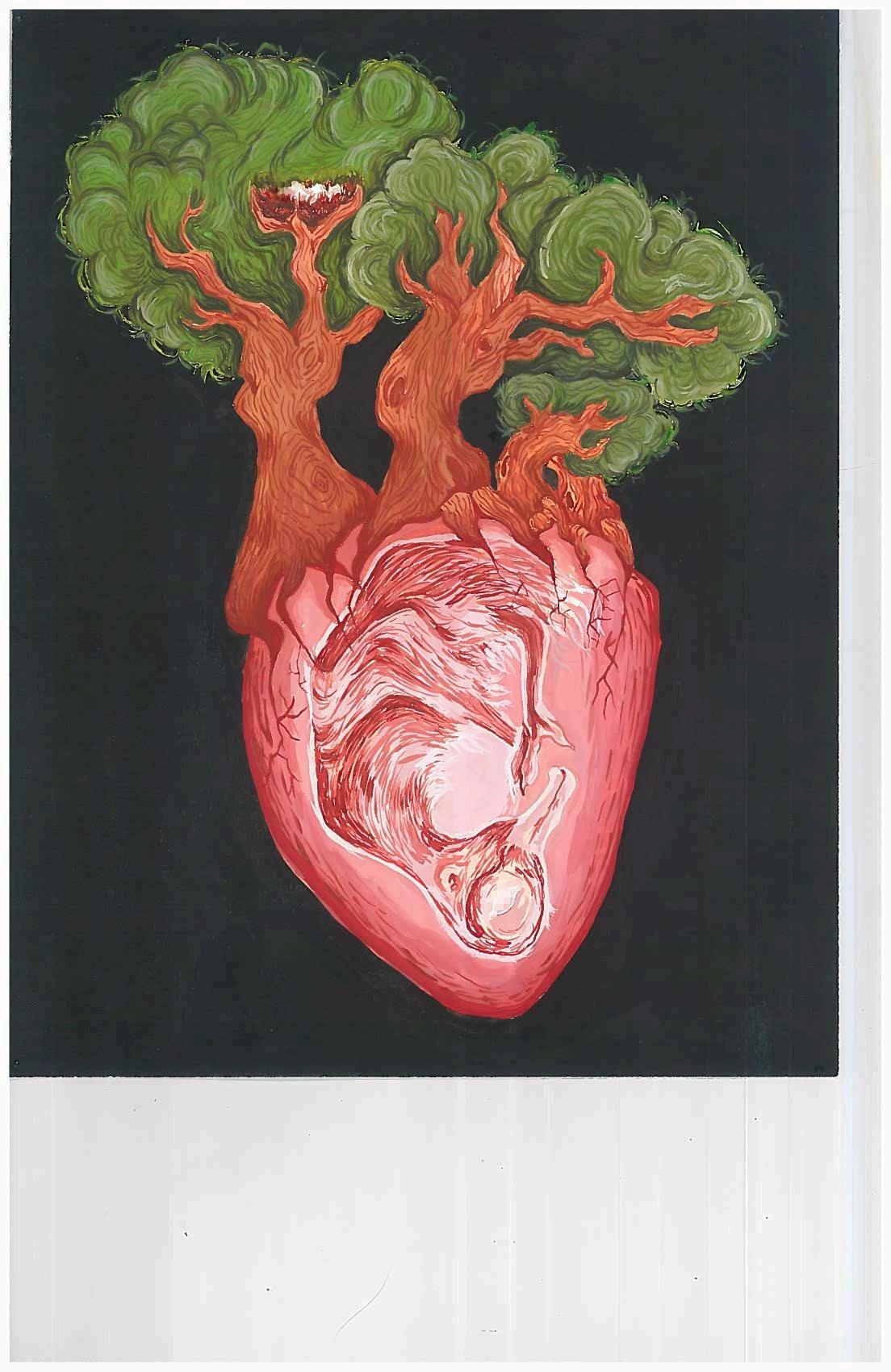
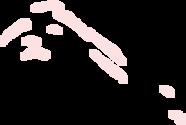
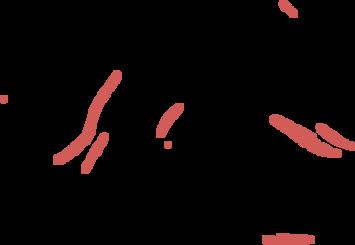

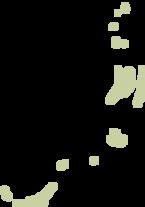
Amanda Meyers
Perched on the low-hanging branch of a tree, I am I’d like to think imperceptible from the trail. I can faintly hear more so, feel the rainwater being absorbed into the earth around me, letting out a sigh of relief. The sound tickles like the dissipation of all the emotion in my body. Trying to make sense of the tangled tapestry of tree limbs and foliage, I find comfort in my relative smallness not because it implies that I’m insignificant, but because it implies that I belong; I am just one tiny organism in this green leafy corner of the big blue earth.
A caravan of geese passes overhead, their overlapping calls leaping from deep inside their chests and resonating up through their long necks. I pick out a particular goose at the end and try to listen for her voice. I imagine that I can isolate its sound, but I’m probably delusional. She totters subtly, perhaps out of impatience with her spot at the rear, or perhaps with gleeful indulgence in the sensation of flying. For a moment, her distance from the next goose lengthens, stretching the tail of the V formation.
Like the flock of geese, my body is made up of smaller parts, just like the river is made of water molecules. Similarly, my mind is comprised of a complex collage of intangible parts: memories, impulses, hopes, and emotions that miraculously syncretize to fly together in a V formation. And yet, simultaneously, I am like the goose whose presence molds the shape of larger groups called household, neighborhood, ecosystem, nation.
It’s a bit ridiculous to picture Humanity as a single organism despite its disparate parts, tripping over itself like runners in a three-legged race. But isn’t it only reasonable to imagine that the sum of all our minds, compounded like the organic mass of our bodies, would constitute a greater mind? Perhaps “greater” is a stretch since this mind can have no self-awareness so long as individuals do not recognize their belonging to it.
Just the other day, my classmates and I discussed the depressingly unethical yet massively functional meat industry, studying it in systemic terms as we college students are apt to do. But our discussion was
disappointingly punctuated not with a recognition of our individual participation in its survival, but with regrets that our actions could never disarm the inevitability of “the system.” It was as if we mistakenly imagined ourselves as salmon swimming upstream, unable to reverse the river’s flow no matter how forceful and widespread our defiance.
But the meat industry and any human-made system is not like water. The seemingly unbreakable habits of our flock are not forces of nature but socially constructed momentums. It’s better to think of ourselves like members of a marching crowd, gushing through the street like a viscous fluid. A few drops ooze into side streets or stand stagnant in eddies. Others push against the stream. It’s a massive task, but little by little, the crowd can change its direction. It starts with a handful of individuals who view themselves not as outliers, but as active participants in its powerful flow.
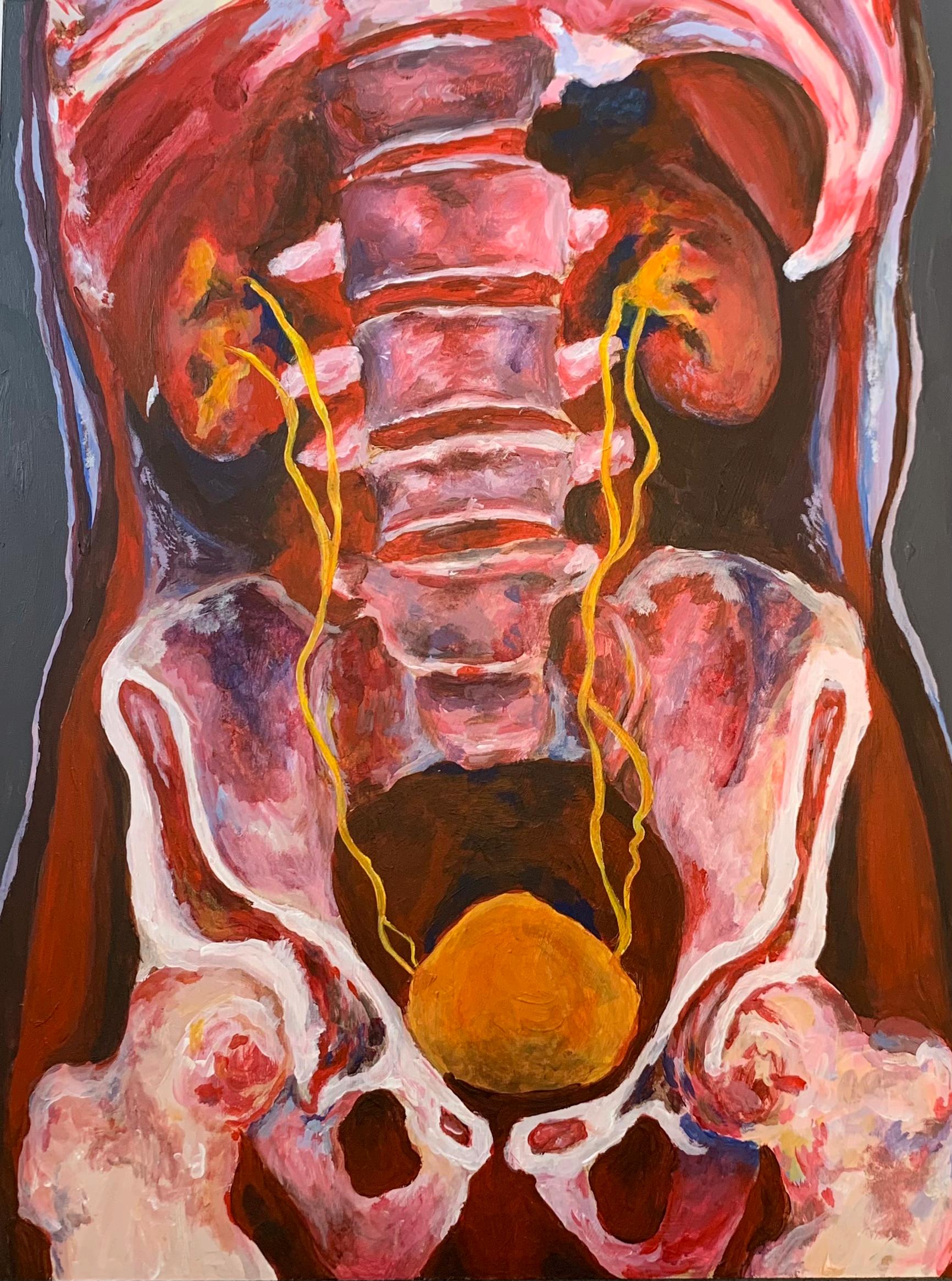
Francy Wentker
i’d like a set of brand-new lungs, please and a bouquet of violets that haven’t yet reached peak fragrance
they’ll grow mold in a vase and i'll fail to smell it in favor of the olfactory memory of their powdery, sweet perfume
my new lungs could take much longer inhales, see and they’d expand and contract rhythmically, doing well-timed yoga poses to stay on beat but my current lungs, see
they lack pacing and fervor relying on poorly executed circuit training, only aiding in times of urgency producing shallow bursts of air and desperation
my nervous system doesn’t recognize the difference between parallel parking and being stalked in an alleyway, see and my weakling lungs’ supine attempts at breath regulation are not helping my case
maybe i could have body-friendly fertilizer and flower seeds i’d like to think my ecosystem is stable enough to create and sustain life but what if my old lungs leave the stems moldy like two-month-old vases of piss-yellow water do?
i see too many discrepancies in this plan, which is why i am asking for a new set of lungs and a bouquet of violets, please
i understand i’ve been a neglectful guardian of my current organs
i see i’m experiencing the consequences of forcefully inserting six months of sweet tar and four years of battery-powered vegetable oil into my chest
and therefore i propose: a brand new pair of lungs and an unripe bouquet of violets, please because my strongest source of memory can’t rely on charred tissue and tremulous breathing
Emily Dixon
Every morning you must listen to the birds song, be consumed; hear the cascade of tension debating its existence: blood from birth and way of life. These birds sing in a choir, a single melody carries them home, but home is not built for a song. The music plays before the sun wakes, their chirp passes the hour echoing delicately through the callous labor that build infrastructure. Nothing left of their nest. Overtaxed and wings sore it is tempting but refrain from a complaint. They feed on the hope for an advantage, but their ribs are bare. And yet, each song is a prayer; you may not see them in the trees but you will hear their verses, almost like you know the words. These fields have housed their bodies, with pride, they lay rested under the blazing sun that has tattooed their skin. The world offers them no tombstones but their feathers pile your pillows. For the next generation, they sing migration is an advantage. The birds belt this rhythm, with lungs that gargle laughter, it serves the beat. Lost in translation is a battle cry fighting for permission to exist outside figurative borders. The sky is cruel and the trees offer no sanctuary but it is within this sacrifice they thrive, there’s a thrill within them it beats in their chest. You will hear this song; each morning as the sun rises, much before you do. Listen for the sound; the promise for freedom in musical harmony flocking together for a chance. This is a Ballad, the song of my people.
Elizabeth Dimitrova
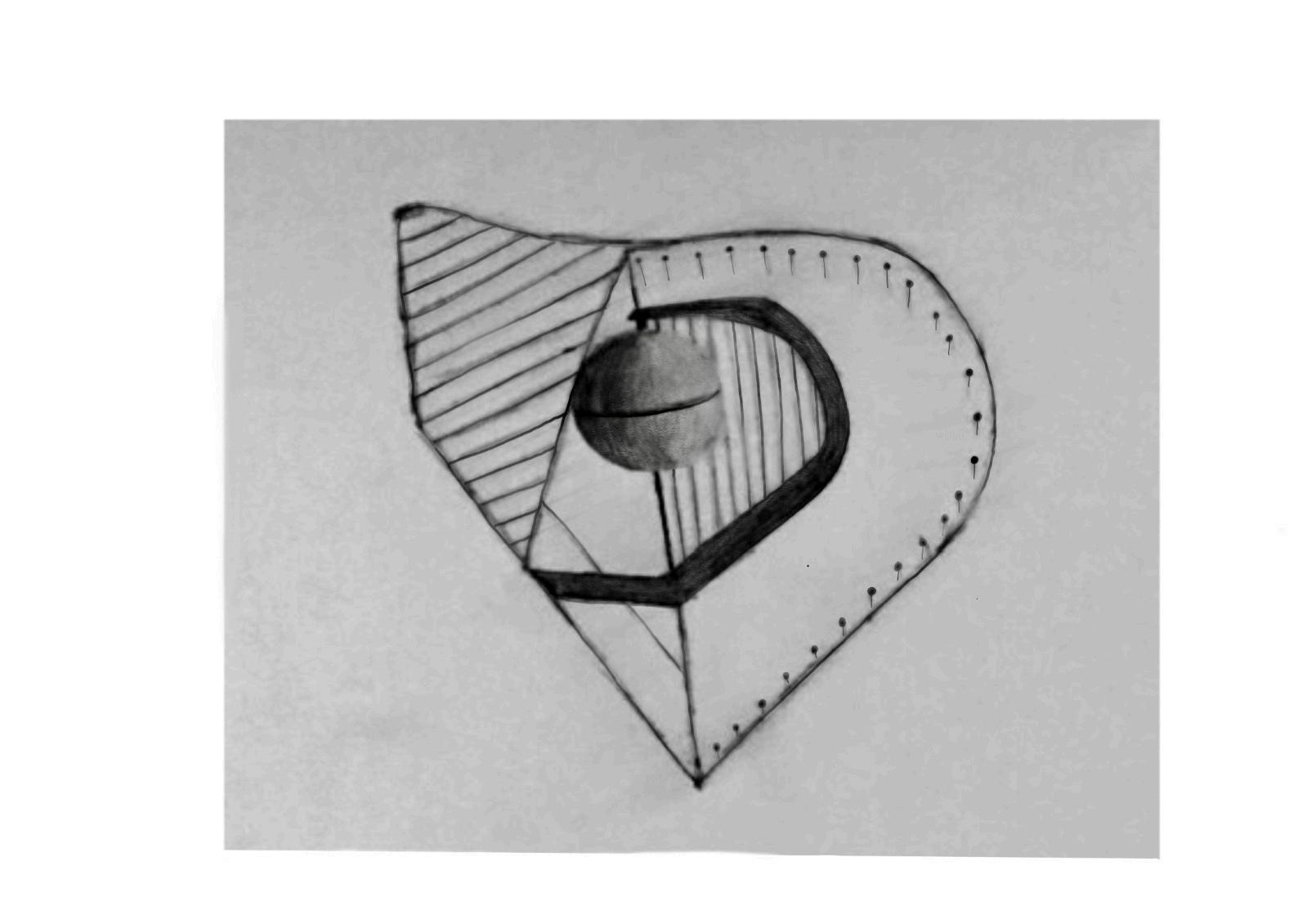
Catherine leach
Vick lined her hand up to mine.
Mom– whenever I cried, you told me all I am is the sum of my parts, that I was every two before me added up, lopped onto the next, so on and so forth from Genesis all the way down to August 1974, a crumpled cot bed in Chester Park. My parents, put together with just as much elegance as the spiral on a snail, all goopy slow feelings leaking hot enough to burn your tongue. You said that’s why it burned, with every two added on to the last, it kept burning hotter. I mean, you were an Adventist, so maybe what you meant was the end of everything. But numbers don’t just stop. I never really saw the point in waiting for the end.
Vick lined her hand up to mine.
And so I don’t see the end. Well, sure, I see the end– the end of her fingernails, how they curve like pine wood shreds. The end of the lines on her palm that she got read on the boardwalk, how they mirror mine and how they end right with me.
Mom, Vick’s hand felt like a puzzle piece, I’m telling you. You know those sticky sun-faded games we’d play, pieces stained sugary by your coffee and my applesauce? The cat ate the last piece one time, that cubist-rendition of the Mona Lisa, her smile boiled down to a couple blocky triangles, all out of proportion. Screwed up, if you ask me, and the cat thought so too– he ate the corner of her mouth. What I want to say is that she fit perfect, right there in that corner of the mouth where we meet so often. We fit, I guess. Did you know our hands come ready-made set to God’s aesthetics, each bit of finger proportioned a quarter, a quarter, and a half?
Maybe I’m out of my mind– but let me tell you something. She was in front of me on the bed, around all sorts of quilts and pillows for the winter, her hair wet from the shower. It was pitch black in the room, dead silent too but for the Newswoman's tinny drabble from the TV. Her hair was black as that night, but her flyaways were glowing all yellow and pink and blue in the light of the TV’s shine, our staticky old box that tingles your finger if you try touching it. It was covering some broadcast of Hurricane Alicia, the one that hit near Grandma’s place in Texas last August. Alicia’s spiral burnt itself right onto my eyeball. It caved in on itself, like spirals do– a tightly wrapped bandage cutting off blood from my eye.
I got scared out of my mind cause I felt so small. I pictured a twister ripping right through our studio– I pictured me and Vick getting carried away on the wind, still sat on our quilted queen bed. So I shuddered and moved my sight from that glowing box of hell, as you’d call it, and looked down at Vick’s back. Her wet hair was, like it always was, plastered on her back in perfect spirals, meeting and conjoining with each other. It smelled like her flowery shampoo. It had been doing that before, those spirals, that is– I’m sure. Just like my own hair, though it’s coarser and not such a pretty deep brown, probably had, but I was as blind to Vick’s as I was to the very hair on the back of my own head, behind my eyes. Those spirals scared the living daylights out of me. It felt like God or the Newswoman or I don’t know, Betty Crocker, was trying to tell me something, maybe trying to tell me to get my shit together, because Vick could float away whenever, right up into the sky.
I’d reach my hand out for her’s, but she and those lines on her palm would already be long gone.

BRANNA SUNDY
party in the university | particle in the universe an astronaut floats through the empty void head in a bubble, eyes closed, freewheeling through space meteors shoot past each other nearby, an enormous interstellar cloud of plasma gathers rifts and wrinkles stain the couches, puckered scars on the walls i run my finger along the table’s edge, tracing a line through the dust other isolated entities drift around the weight of the scene pulls everything downwards a burst of imploding elements, collapsing under the heft of loneliness then a hand stretches through time a blinding heat sears my eyelids the universe expands within nanoseconds, setting the sky alight with shimmering ribbons of elemental beauty mystery? magic? science? all mixes up and swallows me, tossing me across the ether and into
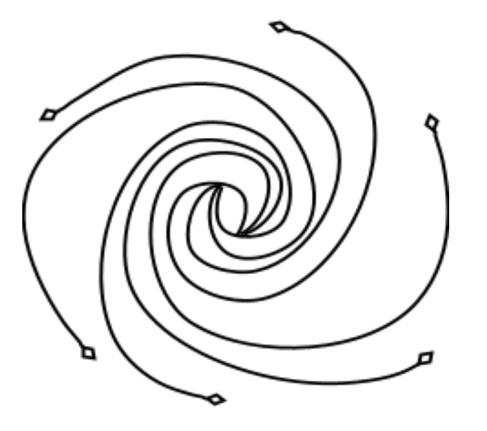
and now here i am, orbiting these celestial bodies, searching for their starry eyes, reaching for their moon-soft smiles, floating in our constellated conversations, begging to spend light years in their galaxies the space between us sparks and scintillates, something humming among the humans here and sending a surge of a vast and inexplicable energy through the skin of these little life masses, sinking deep underneath the fabric of our molecular structures and into the bone, explosions crackling between particles this cosmic sense of wonder envelops us, space dust shining on our outstretched fingers clinging to each other in the dazzling expanse of infinity
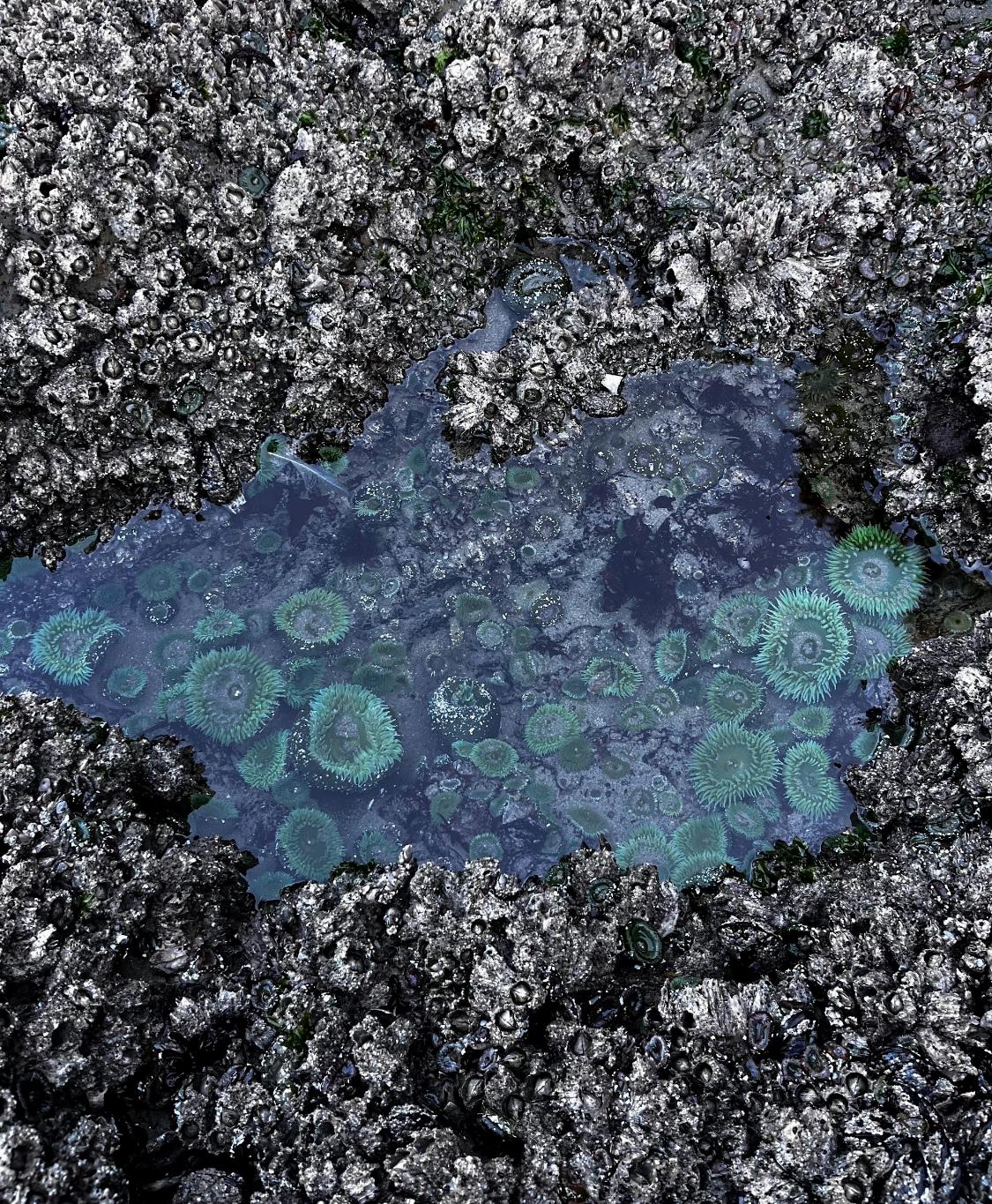
Te sentaste y commence a llenar tu copa de vino
Llene la copa hasta el borde
Y Me senté al lado tuyo esperando
A ver si me dabas un poco del tuyo
Dicen que el vino entre mas viejo sabe mejor Y por eso me quede
Con el tiempo me di cuneta
Que nunca sabre como se siente tu querer
Estas Guardando tu vino
Para compartirlo
Con alguien
Especial
You sat down and I began to fill your glass I filled it to the brim
I sat next to you, waiting To see if you would share me a little of yours
They say the older the wine the better it taste Which is why I stayed, waiting
With time I realized I will never know what it feels like to be loved by you
You are saving your wine
To share it
With someone Special CECE
Jae Renette
It had my dad surrounded by five of his younger siblings: Wilbens, Kens, Fernande, Kernide, and teen girl. My uncle Mak was either not yet born, or he was and just wasn’t in the photo. He could’ve been in my grandma's arms if she took it, but they were on the porch of a house– most definite their New Jersey home. I loved that house. It was a tall, yellow multi-family home in Irvington, 15 minutes from my mom’s side in Union. Growing up, my siblings and I used to live out there over the summer while my parents worked. My whole bloodline, mom and dad’s side, lived in New Jersey or in close proximity at some point between their families’ migrations and now. The only girl cousins on my dad’s side live in Florida, but some summers they’d be with us too.
While my brother and the boy cousins stayed up in the loft, the girls of the family stayed in the room past the tv and laminated couches. It was a girl's room, no doubt about it– a girl sanctuary. Pictures of my aunts and grandmother lined the walls. Pink frills and floral decor in each corner. The chest of jewelry and lace were always forbidden, but when we were all together, we knew grandma’s teeth coming out meant it was time to dig for treasure. We’d pick our favorite jewels and pose for pictures on a camera. We looked through the jewelry boxes choosing our wedding bands, pairing them with bold, colorful earrings. One night in particular, we were quite bold in our choices, and decided to touch the one room in the apartment we’ve never searched before. The sun room. The sun room?! Grandma will kill us.
Sabrina never liked getting in trouble, which, I too am scared of her mom, Kernide, but, Grandma is asleep, and Sherise and Janiya are standing watch. Samantha and I thought it best to have the littles stand out in the dining room in case our grandparents woke up. They’d be distracted, and we’d get a snack. Sabrina, come on! Fine… Just hurry up. After summers of convincing, Sabrina was finally in on it.
Our grandmother kept old clothes suitable for hand me downs, furniture she never planned on using, photos in and out of frames, and an entire family’s history stored away in one room. We weren’t not allowed to go in
because the items were of great value, more because it was a bit of a hazard to walk through. It had dust everywhere. The street lights glowing in were the only source of its nature so we could only see the outlines of each other's puffs and braids until Samatha turned a flashlight on. Unless we crawled or climbed, we were too small to move through the mazes paintings and curtain rods, so we curled around the entrance and scanned for the hidden gems. That’s where I found it. In a plastic container shoved beneath a couch. An entire box of pictures centered around her. One in particular piqued my interest, but a noise prompted us to bolt out the sun room and act as if nothing had ever happened.
The littles were a much needed success that night, and while Sabrina, Samatha, and I stealthy put everything back in order, I started to see her. In pictures and memorabilia filling the shelves. I had never noticed her before. She couldn’t have been much older than Samatha. Maybe I assumed she was a relative in Haiti. Wondered if she was any good at playing pretend. I imagined her presence would’ve been like Uncle Mak for the boys. All them in the loft, and us girls downstairs. Sabrina and I were the self chosen slumber party activity coordinators, but she might’ve made things a bit more fair, given Janiya and Sherise a fair chance. She would’ve cooked dinner with grandma and teased us when serving finally came. At night she’d stop us from going and playing where we didn’t belong. She would’ve been another element in the story of my life, but somehow when she had always been there, I skipped past her.
I remember the time passing and constantly wanting to know who she was. She had a smile wide as ever and was wearing a bright, neon pink hat, with a multicolored jacket to match. She must've been just as, if not more charismatic than her siblings. They’re all filled with humor and wit, I can’t imagine she’d have any less. My dad and his siblings work in varying industries. Having bounced around, he’s worked in medical labs, at Lowe’s… He’s an estate broker now. When he was a personal trainer, I was homeschooled, so for P.E. I got to chase his clients around the gym. For Florida State History once when we were at a park and that’s when I asked him about the photo. I described it. About the house. I knew it was Irvington because it had my grandma’s garage in the back, the one where she cooked peanuts. I described her clothes and that’s when the lightbulb dimmed.
Oh, that’s my sister. You don’t know her yet. He tried walking away as if that information didn’t just erupt my world. What’s her name? Where is she? I was likely too young to notice any signs of his discomfort.
Mama. Tati Mama.
Why haven’t I met her? Where is she? What kinda work does she do? Where does she live? Is it far? He ended the conversation saying, she died a long time ago, and prompted me to the car. I used to hate how he was always shutting down my storms of questions. I was too young to understand that levity with such topics probably made the father and grieving brother in him bud heads. He understood me as being curious and decided to step away, but I wish he hadn’t. I wish he’d let me into the world intertwined by our blood.
There’s one thing I can say that is 100.00% true, my father will talk about everything. Politics, differences in opinion with his church members, sports… He recounts the traumas of his migration from Haiti to New Jersey as if it were another day. And I may be biased, but he loves retelling stories of our family the most. He has a way of bringing the memories up so easily, we must be on his mind constantly. He’ll talk about anything. Whatever the topic. His mouth moves. But with Mama, he turns into a man I’ve never met. One so far crawled within himself, there seems to be no way out. Before our timelines crossed, my father had a sister he can’t talk about, and I can’t help but to wonder what she was like.
Since learning of her existence, I imagined how Mama would fit into the ebbs and flows of family. At weddings I pictured her dancing with a nearly empty drink in hand. My dad and his brother Kens drink liquors like whiskey. She’d have an almost empty Old Fashioned and would grab the hands of our elders to dance. Her braids and her pink dress would swing to the rhythms of Kompa, and when it ended her laugh would fade into the same cry as her siblings and their mother’s laugh. She had a bright smile and only a loud, contagious laugh would match the beauty of such pearls. My aunt Fernande had a tomboy style back in the 90’s when my parents were getting married. I imagine the two of them being thick as thieves, dressed in their oversized jeans and jerseys with backwards hats. My parents and my mom’s sister’s often tell me I look and act like Fernande. I’ve never seen the similarities, but when it is mentioned, I wonder if maybe what they see in me, if what they
think is from her, is actually from Mama. I think about the similarities we may have and if my father has ever noticed them.
All I know of her comes from that picture in the box, and two brief conversations with my dad. After the park I let years of character building pass before asking about her again. I was assigned to write a short story in freshman English so I decided to write a story dedicated to her. On the bus I prepared simple research questions, by then I knew not to be so bold. I walked in and found my father sitting in the same chair as always, looking out to the forest surrounding. I started on plan, told him I was writing a story and needed a character name. We continued our normal exchange of ideas, until I asked, what was the name of your sister again? The one who died? He shifted his body and answered Mama. I could sense the end of the conversation was coming, and I didn’t want it to, but I knew I only had so much time before blurting, how did she die?
He paused longer than a second.
The grieving brother wanted to face me, but my father answered ovarian cancer, the doctors found it too late, and as predicted, the conversation was put to an end. I tried for more, but he brushed me off and went back to work. I think I know everything I’ll ever know about her, but I’ve had a million more questions on the tip of my tongue since. What was she like? How did her voice sound? Was she tall? Did she have any hobbies? What kind? Did she play a sport? Which one? I played soccer, volleyball, basketball, ran cross country, competed in track, and even did wrestling. My dad was a wrestler. She didn’t seem like the type. In the story I wrote she played basketball. I named her Tati because that’s what I would’ve called her, Tati Mama. Like in the photo, Tati had braids and wore pink. Her mom was a chef and her coach was going to be the emotional support. Her name was Tati, she played basketball, was 15, and had ovarian cancer.
Writing about the life of someone you don’t know is a weird, difficult experience. You sit at your computer thinking and pondering. Asking yourself if they’re being accurately depicted, but when they died before living, how do you build that life? The thoughts and questions just float around until you eventually find your footing.
What mannerisms would she have?
Where did she keep her jewelry?
What kind of clothes would she wear?
How did she respond to scary situations?
What kind of lingo would she use?
What was her favorite snack?
Did she have any hobbies?
Did she want a medical career?
How does a 15 year old respond to learning she has cancer?
When is her birthday?
Did she and grandma get along?
Was she good at math? I suck at math.
Maybe she would be a vet.
How does a 15 year old respond to learning she has cancer?
How did grandma respond?
Does Mak remember her?
Do her other siblings talk about her?
Does he visit her grave?
How does a 15 year old respond to learning she has cancer?
I’ve been writing since I was a kid. I know there comes a point where I won’t know how to carry on. I won’t know what questions to ask, or I’ll get stuck in the tracks trying to answer one. I know how to write, but when it came to her story, I didn’t know how much of reality should exist. I didn’t know how to rewrite a stolen life and give honor to the past. How much of my dad’s sister could I use to personify my Tati. How do you put life into an unlived tale? I never did finish the story, but sometimes I wonder how Tati would’ve ended up.
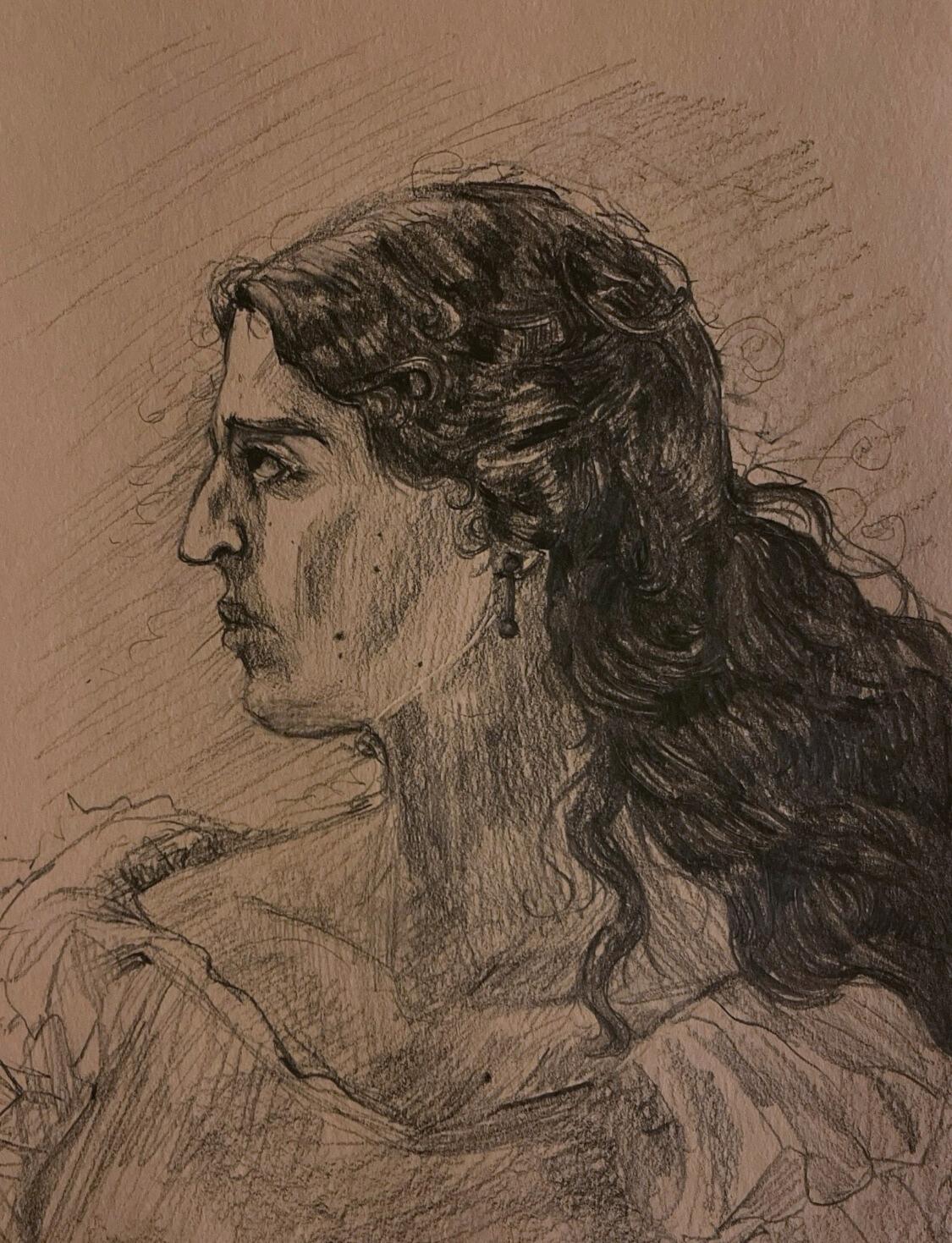
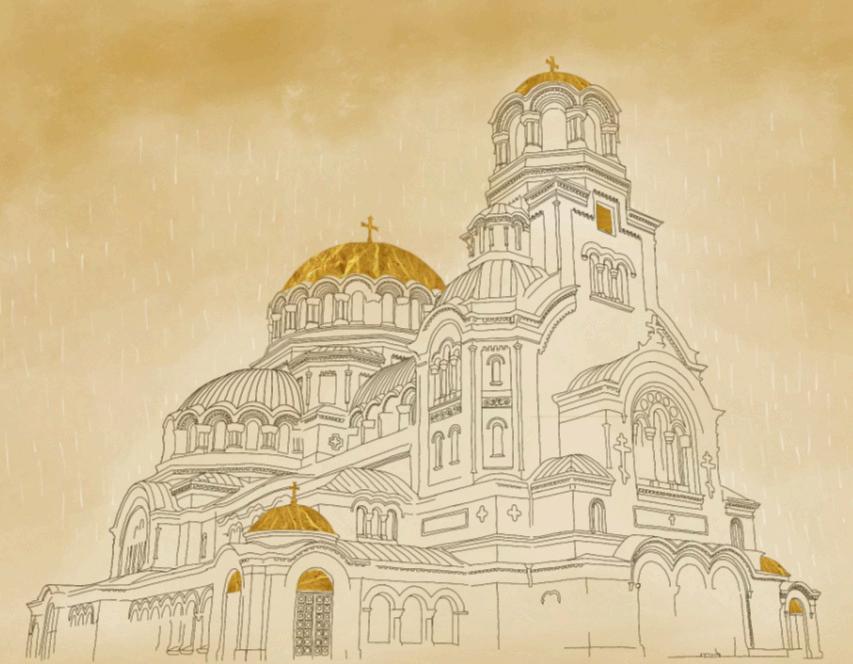
Elizabeth Dimitrova
Cobblestone clicks too quiet
The words of an old woman
Hard to hear across the street
She might weave, or paint, or draw
Someone does everything here
In the end they will ask you
Would you like to buy something?
But it’s just an old wooden box
Not worth much in comparison
There’s a castle across the street
At least a close facsimile
Maybe greater treasure inside
Light a candle, roam the walls
So what is it that you see?
Keep respect high, voices and lights low
Don’t be surprised this place is for grief
Few come here to gaze at history
They burn fires for people here and gone
Look above the oil pits in the ground
There is but one place to go
When will you crane to the sky?
The wood beams lead to the epicenter
This kind of wonder can’t be seen in full
A building so grand with crowds that are not
It’s not a lack of appreciation
Live this way long enough to see the rain
t clears and men climb the dome
Isn’t 50 meters too many?
Gold plating gives protection
But washes away over years
The castle’s shiny crown melts
To something plainly simple
As eternal winter storms
Finally it is replaced What else could the people do?
But why with real, true gold? Well for real and true pride
The answer has always been the same Why ask such a question?
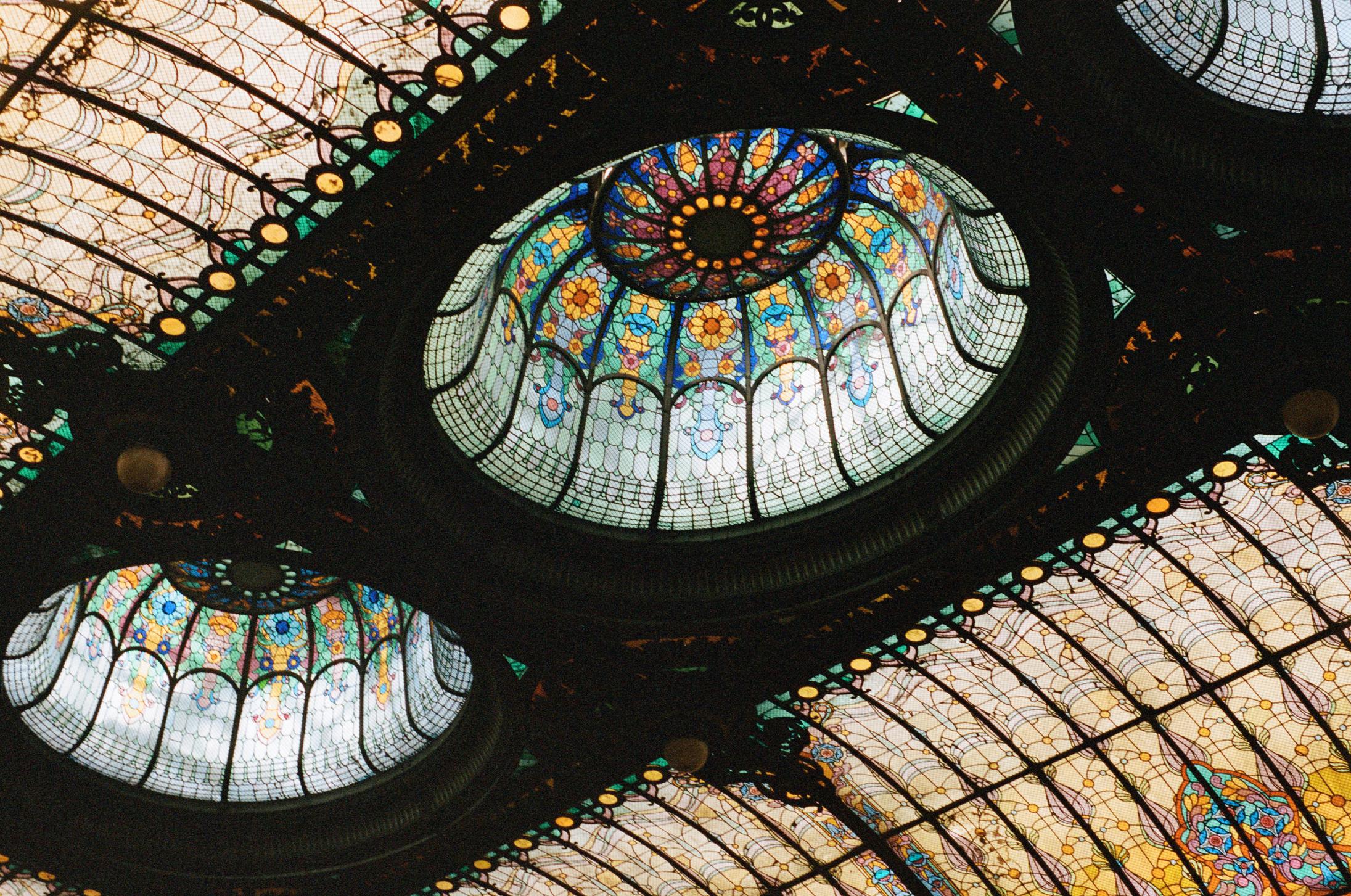
Mary Jensen
Each morning, she wakes to a mind stained with longing, The fragile hope of a new horizon. Suffering draws her nearer to Him
She reminds herself. Yet ghosts of yesterday press into the fabric of today. Lord, be with me.
She sits by the stained glass window of a café, Watching sunlight fracture against colored panes. Her coffee has stained her white pants
Marks that fade, unlike the words in her mind, Whispering, calling: Get on a plane. Go home.
On the floor, pink and blue hues bleed together, A mosaic holy, yet broken. Beyond the glass, the city hums, Frantic sirens wail as people pass, Their footprints stained the streets.
Where is redemption?
She left to seek something Was it His will?
No. Not running and not escaping. But is she meant to be alone In a city across the world?
"No one who puts a hand to the plow and looks back is fit for the Kingdom of God."
She exhales steadily. She has kept the faith. She has stood in churches where sinners knelt, Where hands were raised, where eyes reached Toward the heavens.
And though once stained with sin, They had faith in Him who bore them. She clings to this.
Emma Becker
She was line embossed by the embrace of hours, like the silversmith’s most beloved creation
With rippled veins caressing down the length of each arm, not so much a mimicry but one and the same as those in the leaves that come to fruition when the air feels light again; only to cast their eyes down in sullen solidarity in the fervor of the frigid months. Cheeks that once blossomed to vivacity in an instant the way her daily black coffee engulfed cream now lay silently enveloped in the crown of her sleeping silver hair; the position she too must have assumed years ago, an infant melted into her mother’s embrace.
In a casket, the walnut wood wrapped lazily ‘round a rough emboldened center knot
In childhood the trees were imagined to be sentient and civil; and suddenly simple solemnity ceased to swivel
Dear Nature,
You are curious, surrounded in mystique. This is not a love letter
We are all orphans from birth until death
Unresponsive, left to guess
Her name in the synchronicity of saccharine summertime citrus; Tantalizing in sweet sunset fluorescence as fungal spores saturate its predecessor’s last breath
What is the reason for the eternal coyote - hare chase?
We are fleeting art; alive and unleavened
But, oh, how could you remove it all, indebted to us grace?
Perhaps we are at fault; inherently marked heathen
And to the daughters of Eden, who assigned you fallen?
You are vessels of Nature herself
Endosymbiotic, you have the magical capacity of genesis in your genes
Allegorical in the physicality of your nature to the horticulturist handling hydrangeas
Enchantment is evidenced in your effervescent existence
Magic is all around,
Even in the melancholic hymn that Nature sings
Is this a love letter?
Even in the song of Nature remains a melancholic twinge
Magic is all around
And to the unusual, who conferred on your unconventionality?
Queerness was in the conifers
That leave in their wake the future of the verdant evergreen forest to the breeze
And underlying the invention of the unnatural was an intent to unnerve
Ugly was a word invented, the first syllable an imitation dog snarl.
We are all orphans from birth until death
Unresponsive, left to find divinity
In the incomplete creatures of Plato’s Symposium, individuality the true abnormality
Enantiomers at the molecular level; mirrors of right onto left
Is the answer to hearken to the hawks; to attend to the attitude of the agriculture?
At birth we are bare of creed; a lake of liberated lilac lupine lining the hills errantly
But oh, perhaps we are a wonder of perfection inherently?
Love is the answer, the remedy; do not let venom consume virtue and create in you a vulture
Dear Nature,
You are curious, surrounded in mystique
This is a love letter
In a bassinet, the willow wicker lay women woven
What a wonder that warmth can be written into reality, lasting long after the working wrists rot
With cherubic cheeks and laughter lilting long like lovely lavender rippled up the vine and stark starlight searching eyes; she was energy enlivened. Her scarce scattered locks lay in wonderful wispy threads of gleaming wisteria. At times the wells in her weeping willow eyes wouldn’t let up whereas otherwise there was happiness in their handsome hazel. The young and the old mull over one another like the markings coiled on a mollusk shell. Who is to say that an end is not simultaneously a beginning when the unceremonious end of the roadkill rat resurrects communion in the contentedness of the corvid crow?
Nature herself is untouchable though she kisses me as a hawk and as a human, an infant and in instinct, as a heaven and as a hell
She is my most beloved creation and I am her and she is I and we are she
Joaquin Valencia

you left your shoes in the center of the entryway
your dishes in the sink the clothes you decided not to wear strewn across the floor
the sticky note reminder to yourself
a half eaten piece of cake in the fridge
you were here i can see a ghost of you and i smile
walking from room to room
because i know you were here
it's like the worn dirt paths in the grass
because it was the fastest way to go and statues with bronze hands
because we had to say hello and padlocks with lovers' initials locked onto chain fences
and hearts carved in trees
with pocket knives
it's spray paint on the alley walls
it's stories painted on the cave walls
it's handprints in wet concrete
somebody wanted to say
i was here
it's the worn down carpet in the center of the stairs
it's the imprint left in the seat of the armchair and the canyon in the bark chips
beneath the swings from kids dragging their feet
it's notes written in the margins of a library book
i was here i was here i was here i don't want to fade away even if you don't try to youre screaming i was here
i promise i'm a person that lived a life and i know it's such a small thing but it feels so big to me it's everything to me
i want you to know i was here
you don't need to remember or even care
but you need to know
you need to see my footsteps and hear my voice
i was here
i promise
Joaquin Valencia
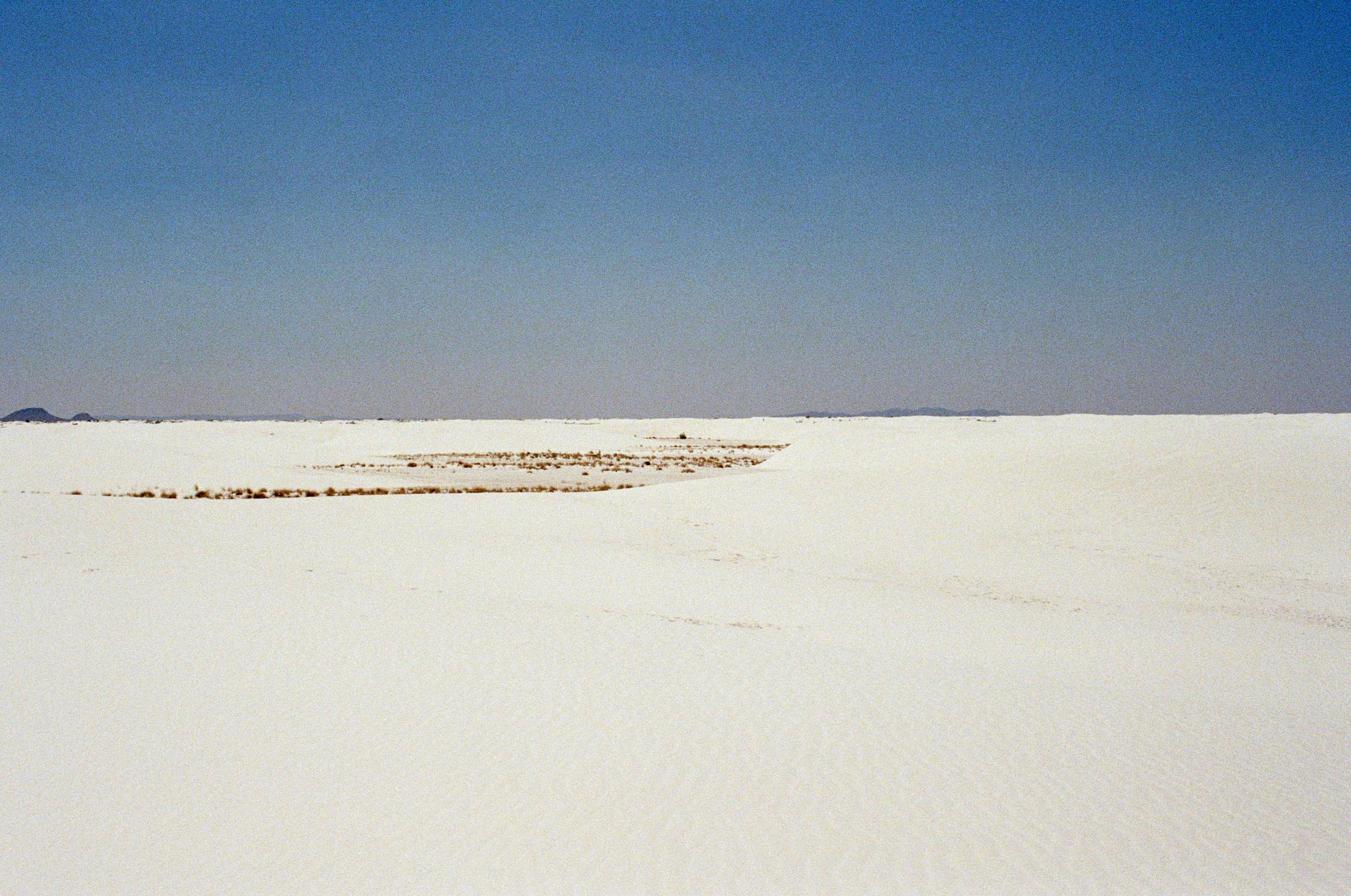
Harper Lawrence
A wall of smoke obstructs my view and all I can see are the delicate tails of vapor entangling themselves with each other like a waltz: one-twothree, one-two-three. They dance and contort and eventually fade, leaving me only with a pungent smell clinging to my person and an invisible playbill to the phantom performance of the vapor ballet. For a moment I wonder if she, too, came by a ticket to the matinee, but my train of thought is abruptly derailed as she reaches in front of me, unraveling her fingers to reveal a timeworn palm.
She is my favorite partner in the crime of “puff, puff, pass”, and I am surely hers. Though I remain lacking verbal confirmation, I am surely hers. It’s the kind of thing I inherently know to be true without the prerequisite of explicit expression. In fact, I might go as far to say that the sheer lack of definite validation actively contributes to the significance of it as a whole. After all, sincerity is only credible when it finds itself in the context of volition.
She pinches her index finger and thumb, with those not-too-shortnot-too-long nails, to grasp our mutual vice. Her palms are stained with ink and the traces of that old brick house in Cleveland. She raises it to her lips, those that have whispered a lifetime of wisdom into my weary ears, and allows herself a slow, deliberate drag. I can see her cheeks fill up for a moment before she allows the heat to escape into her lungs, swirling around in what I can only imagine to be an encore performance of the ballet.
Rarely do I yearn for words themselves, but often I do for the sound of someone else’s voice holding space for my own. The pitch and the rhythm seldom cross my mind; the beauty of the song lies in its simplicity, and it simply feels better when it is shared.
Her fingers glide across the screen that illuminates the dimly lit walls, lined with books and trinkets and photos and keepsakes that frame the converted shed in which we are currently seated. Methodically, she clicks and swipes, finally finding satisfaction in her selection, and the corners of her mouth turn up as if to embrace her cheeks. She turns up to face me, our eyes meeting, offering a silent proposal. I allow my own lips to curl into a crescent, offering, in turn, a silent approval.
The first note finds its escape from my lips, as it usually does, a bit tentative, sure, but familiar, still. My ears perk up as she joins in beside me. Her voice emanates warmth and light, bouncing against the walls of our sacred space with a resonance I can’t quite articulate, but one that immediately washes me with nostalgia. It is vibrant and full of the life she has lived; all the good and all the bad. It tells a story, too; those car rides on windy roads through the woods of Cleveland, soft hums in my ear as she stroked my hair amidst a heartbreak, even the scalding heat of an admittedly negligible argument.
It starts soft, delicate, butterfly-kissing my eardrums like the flutter of her eyelashes against my cheek. It is steady; rising and falling with the melody, an intangible mirror of our chests as our breaths align. There's not a shred of force to it. It feels almost like breathing itself; instinctive, unconscious.
Her voice isn’t perfect. At least, not in the rigid, linear way some people might define perfect, nor does it feel the compulsion to be. The specificities of the sound elude me; but there is something profound to it, a kind of comfortable vulnerability, a sense of trust.
But why does it hold such a palpable significance? A particularly appealing possibility might be that it offers a rare kind of freedom. When we sing, there’s no need to prove ourselves or be anything other than what we are. We dismiss the urge for perfection and simply allow the moment to exist as it is, focusing less on creating something impressive and pristine, and more about creating something together: unvarnished, unfiltered, enough.
It would be unnecessary to exchange dialogue, ours is a conversation that is unspoken. A language we have meticulously built over a shared lifetime of profound hardship and revelatory euphoria, its meaning is not defined by words, but rather the quiet understanding of the enjoyment we find in each other's company.
There’s a sense of comfort in the song, yes, but even more so in the absence of expectation. And yet, within that freedom, there is a certain element of grounding to her presence beside me. Her voice, steady and strong, carries mine even further than I believed to be possible, stretching the limits I might have set for myself within my own mind. The moments in which I falter on a particularly difficult note or hesitate to reach for one just a little too high, there she is, with her unwavering confidence, reminding me that I can.
As I reflect on it, singing with her feels like more than merely existing. It feels like a transformation; like I am becoming something. I suppose that, too, is a large aspect of why I enjoy it so greatly. I find a kind of accomplishment and fullness in our mutual past time. Not necessarily in hitting every note, though that is not something I’d ever complain about, but in stepping past my own doubt, fueled by her belief in me. There is truly a great sense of satisfaction in the way our voices embrace, neither competing nor overpowering, but lifting each other up in a divine example of mutualism.
When the song ends, there’s no grand crescendo or orchestral finale, no audience to give a standing ovation. Just a pause. A stillness that resonates with a fulfillment deeper than silence could ever convey, leaving us exactly where we are. I am transported back to the reality in which I exist: the maximalism of the space, even that pungent scent, and, of course, her. The air feels thick, heavy with the weight of a meaning too profound for words. I sit there, allowing the moment to stretch, embracing it as it washes over me and penetrates my thoughts. It lingers in a rather inexplicable way, dancing around my mind like the infamous vapor ballet, though the desire to define it has seemingly dissipated. Whatever it means, it’s here, and that feels like enough.
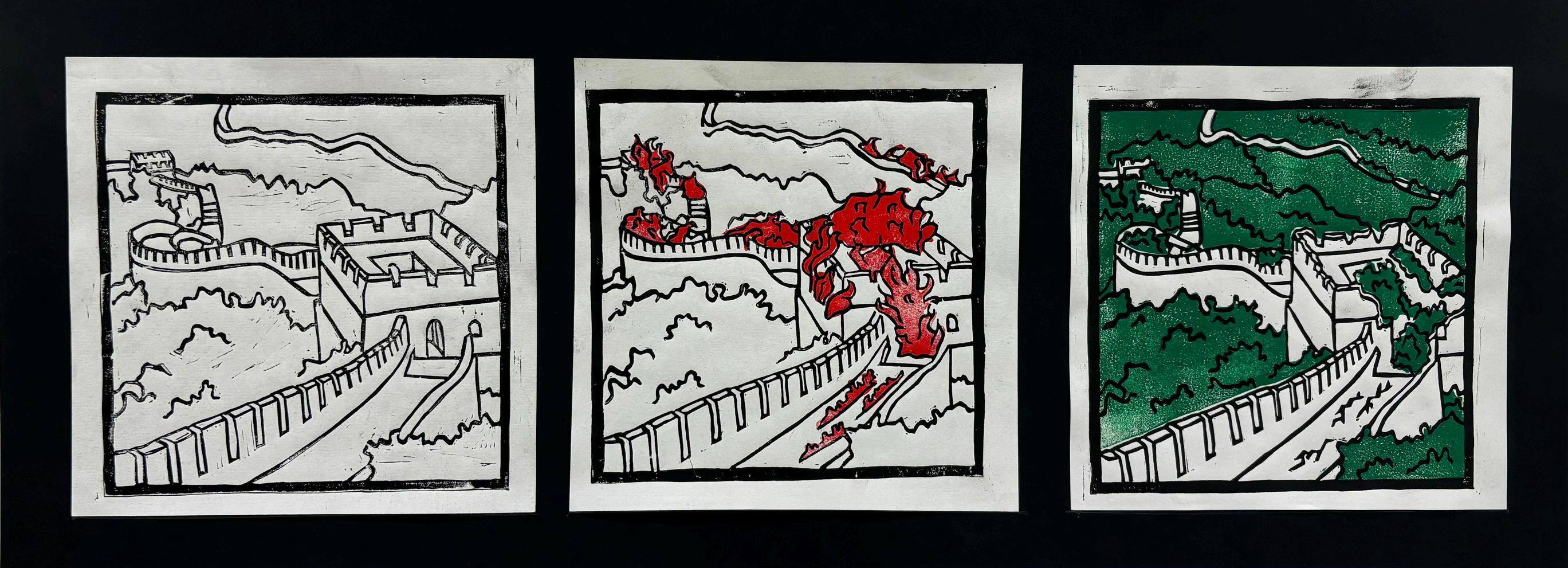
Valencya Valdez
a wrinkled denim folds over itself caresses my warm bruises
leaves imprints on my calves and clings tight to my thighs
while I am lying on the couch for a mid-afternoon nap
dreaming of clemency these days I cannot stand silence
in the grey morning Badu and Hill play on the stereo
Green Eyes, more grey, sky blue decaying in the evening
there are safflower petals in my tea steeped and set to the bedside
next to my flimsy wire glasses with the lenses superglued in and my rusting rings everything is in its place
except for your shadow which had been burned into my bed
sheets and the quilt my grandmother, Rita, toiled over for weeks
after I had left home again though I don’t recall which time it was
only that this year when I spread out on top of that twin-sized boat
adrift with you and you were puking over the edge
I could feel my own stitches split open, dividing the stars from the stripes, mangling the multicolored cats she spent hours
working under the needle for precious me, spoiled by love again
but I can’t stop now there’s still laundry to do
ashes to scrub off my pillow and the patinaed couch
and my carpenter pants and my cream-colored collared shirt
and the tasseled rug, crooked on the floor and my hands, my hands, my hands with my fingers all in their rightful place yet missing something still
Mollie Klingberg
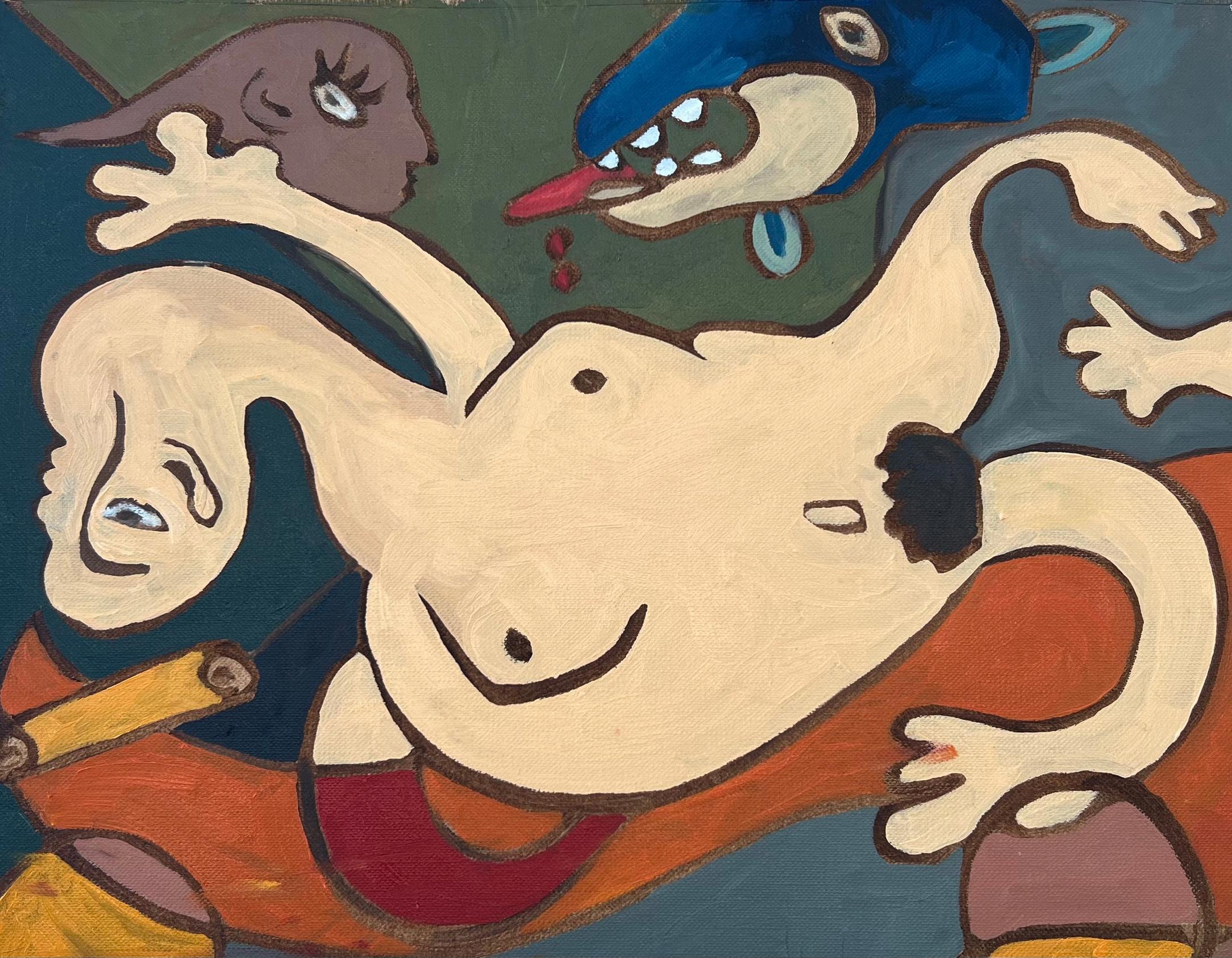
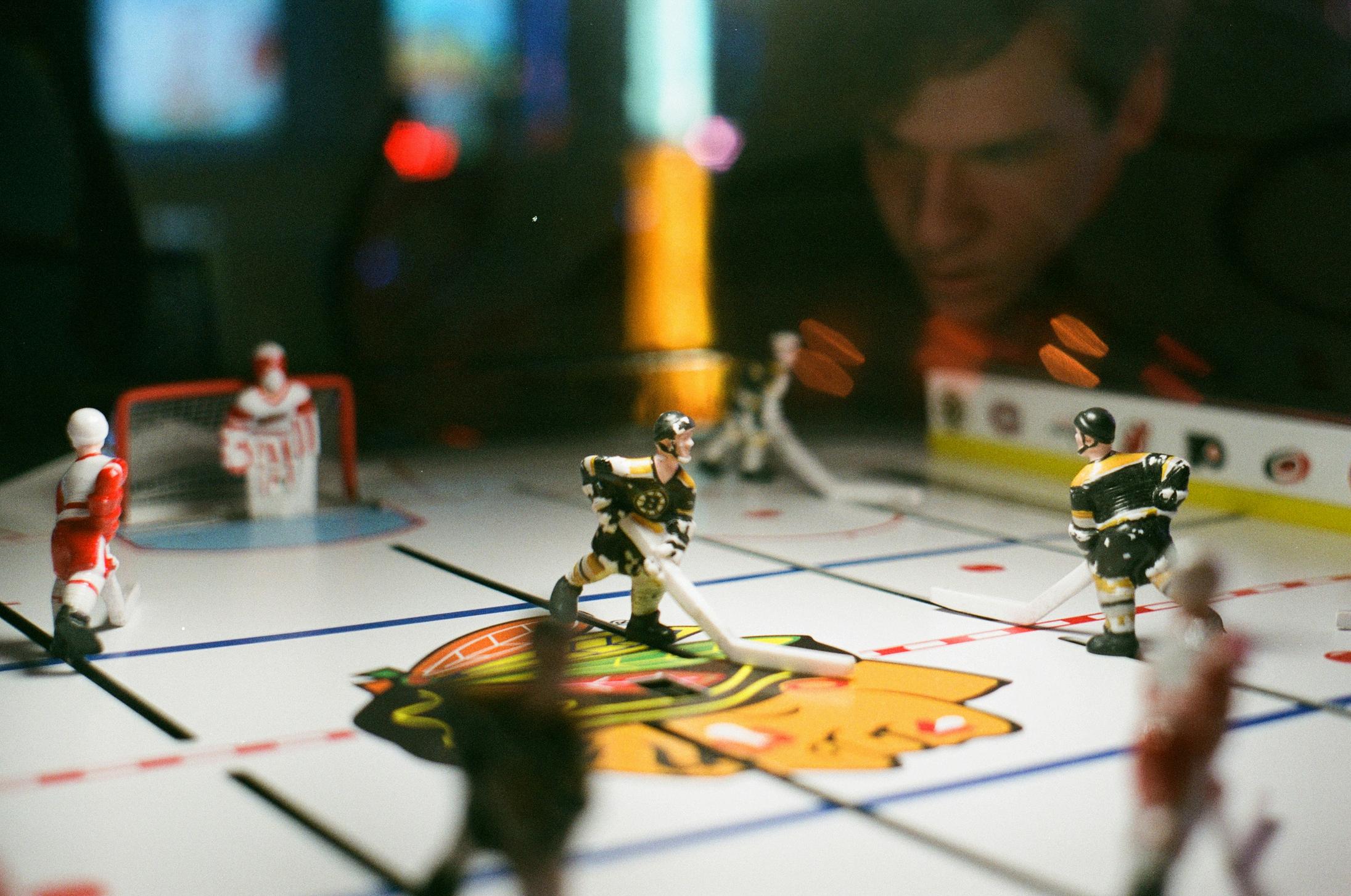
Camille Kuroiwa-Lewis
As you choose the darkest path, notice, how Love passes through your hair, and undoes scarves and ties; it trips you as you walk, before rising to the bird’s eye.
And how heavy must the clouds which ride its tails be. How thick and wet the downpour feels when the wind still whistles in spite of adversity.
But, please, don’t rue the day you first felt wind, on your eyelids and on your cheeks, just because it’s been a while since you last felt the gentle breeze
do not follow the promise of quiet into those easy streets. Do not forget that Love still sings, even after it’s transformed to grief.
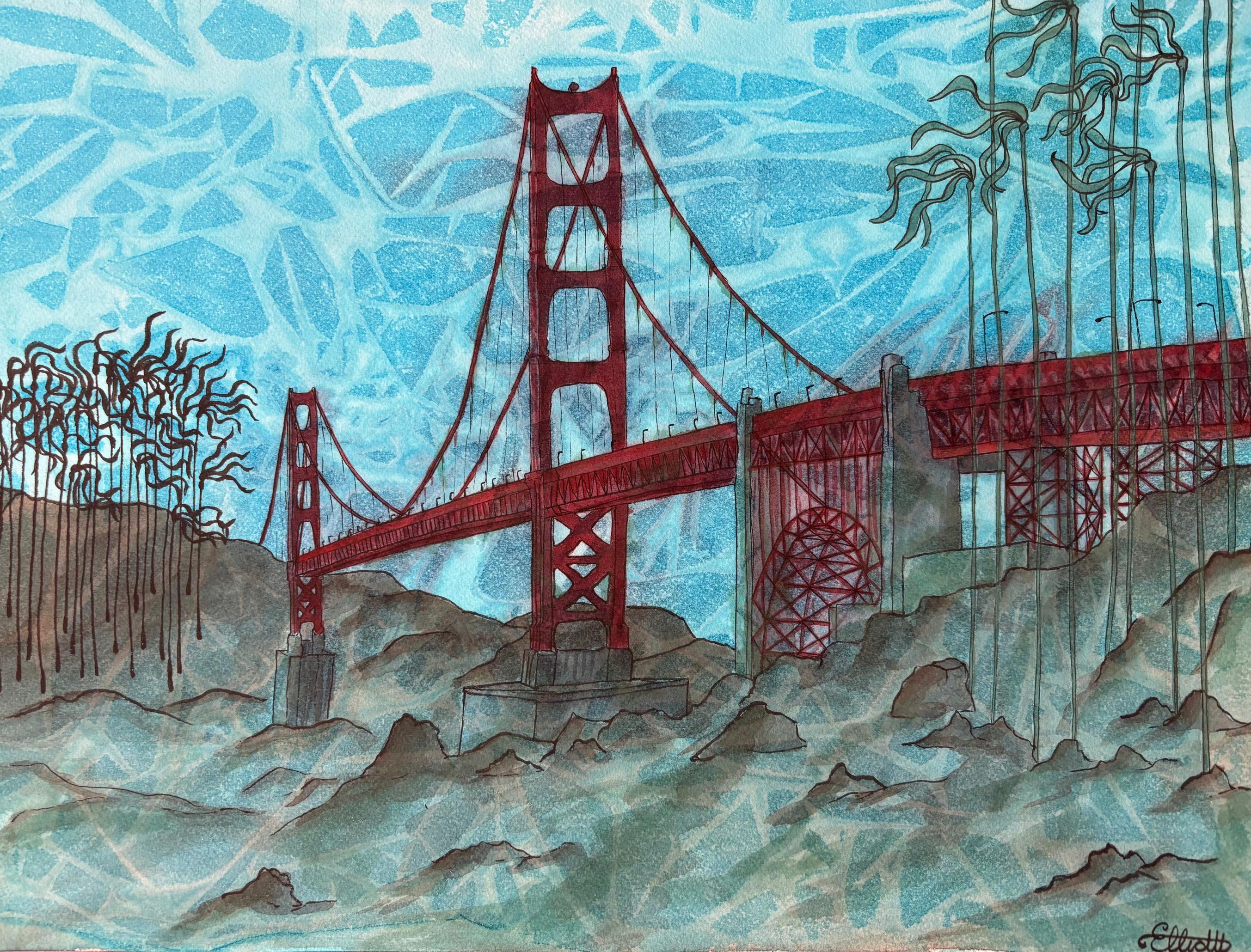
Camille Kuroiwa-Lewis
Been feeling low cause I spend the most time staring at a bedroom ceiling that isn’t mine, meanwhile, you’ve been playing in the riverbed, underneath madrone trees which are supposedly rare but really only hidden near water or abandoned railroads.
(My paranoia is bad but yours is worse since you graffiti the madrone bark with pens and keys because you’re scared of how a metal ball sounds singing in a spray bottle at night. But remember, I’m the one who was always chased off by the stray dogs you stayed to kiss.)
And, anyways,
people painted those train tracks cherry red when we were sixteen and careless enough to lay on the wood like a broken, bloody mattress but you go back now and the color is gone.
So, you suspect mold has grown over the tracks or those dogs licked away the red paint. You don’t know what else could disappear color like that and I definitely wouldn’t know since
I don’t pay attention. Lately, my views of nature are restricted to a four-by-four window where, occasionally, I catch sky to feed on for the morning.
Until, I remember the unfamiliar chest nearby dropping faintly. I want to go outside before that chest wakes up.
Would you think I had it in me?

rocky steps to heaven
Joaquin Valencia
What makes you more digestible than me? Is it the breath in your blouse,
Or the milk in your tea?
My tongue is too acerbic
To make my words sweet
The men make metaphors of you, And I have no famed conceit
You’re more like blushing red beets; I’m more like invasive mesquite
Or whiffs of sauerkraut, Plaguing the sidewalks and streets.
I stick out too sorely,
Shoulder blades winged and knock-kneed
You brush peach fuzz off your neck
And dissolve between their teeth
You’re more like chia seeds; I’m more like knapweed
What makes you go down so smooth, So velvet, so effortlessly?
The gentlemen tuck you softly
Between their gums and cheeks
And when they guzzle and gulp, I bet you don’t even scream See, I leave crumbs in the bed.
I stain the sheets green
A barren pastoral deemed Severely naive.
You’re more like an olive branch; I’m more like a latchkey
If Jesus wants me for a sunbeam, then He wants you for a treat
You burgeon pollen
For your buzzing devotees
The fat honeybees
The sons of queens
They break me off piece by piece
While you are preciously gleaned From ferme ornee And soft bark trees.
Both profit and pleasure, And cranberry beans.
You’re more like ryegrass; I’m more like river serpentine.
What makes me too sour to eat? It must be this pungent ipseity
That makes the lip pucker, Gag and recoil from acidity
Maybe it’s like the scent
Of a blooming pear tree:
The bearing of fruit
At the cost of a fishy stink
You’re more like weeping fig; I’m more like a baby trying to breathe
I took a bite of a ripened apple And found no pleasure
Neath skin and meat –
Only worms and tickled fleas
I am numb to saccharine, Holding on to tart nothings and vinegar calamities
The one thing I know, As sure as can be:
I’d swallow you whole too, If I had the ability

Ashley Marheineke
Eliott Antoniuk (she/her), el·ee·uht ant·on·iuk, proper noun: Collector of fun earrings, 2. Queen of la la la land, 3. Nail Tech
1.
Robin Aughney (he/him), ro·bin og·nee, proper noun:
1.
English, Environmental Ethics & Policy double major; 2. Student researcher of CHIRP Lab and environmental policy; 3. Obsessively curates playlists on Spotify.
Aly Axness (she/her), al·ee aks·ness, proper noun:
1. needs to see a dog on the daily; 2. would have every major if possible; 3. in a codependent relationship with spotify.
Emma Becker (she/her), eh·muh bek·er, proper noun:
1. Biology, BS major who loves science and the mystery of the natural world ; 2. historical fashion enthusiast !! ; 3. girl with way too much glitter on her face.
Frank Bruno (he/him), fr·ank bru·no, proper noun:
one who dreams fervently; 2. resides somewhere near the inbetween spaces; 3. sees the unfolding of life as a poetic journey.
Emma Callanan (she/her), eh·muh kal·uh·nan, proper noun: Keurig pod fiend; 2. Walmart thief; 3. midnight chef. 1.
Cece (she/her), c·c, proper noun:
1.
1. coffee; 2. love coffee; 3. art is nice.
Elizabeth Dimitrova (she/her), eh·liz·ah·beth dim·i·trov·ah, proper noun: Daydreamer; 2. Unapologetically nostalgic; 3. Sweet tooth with no cavities.
1.
1.
Emily N. Dixon (she/her), m·muh·lee n dix·son, proper noun: the little pig who chose the brick house and home insurance; 2. the lip stick stain on straws, lids, and other lips; 3. making great food, and a better conversation.
Diana Hutchings (she/her), dy·an·uh hutch·ings, proper noun: Passionate artist; 2. Mom of the group; 3. Cherry Coke connoisseur. 1.
Mary Jensen (she/her), m·eh·r·ee jen·suhn, proper noun: a soul who magnifies the Lord; 2. pickled cucumber consumer; 1. 3. monsoon season in human form.
Mollie Klingberg (they/them), mall·ee cling·burg, proper noun: 1. candle hoarder; 2. exclusive postcard writer; 3. owner of your favorite scuffed cowboy boots.
Camille Kuroiwa-Lewis (she/her), kuh·meal koo·row·ee·wuh lew·iss, proper noun:
See definition for 'Senior Editor.'
Harper Lawrence (she/her), pa·r·i·elle sha·pard, proper noun:
1. writes like she has everything figured out, but does not; 2. thinks too hard about things that do not matter; 3. somehow both a perfectionist and a procrastinator. See definition for ‘chaotic neutral.’
Catherine Leach (she/her), cath·ur·ine lee·ch, proper noun:
See definition for 'Editor.'
Ashley Marheineke (she/her), ash·lee mar·high·nec·key, proper noun: 1. amateur photographer and lit mag veteran; 2. nature’s not-so-secret admirer; 3. lover of all outdoor activities.
Amanda Meyers (she/her), a·man·duh my·ers, proper noun:
1. proponent of childlike wonder; 2. crow enthusiast; 3. passionate water sign.
Kaylee Monahan (she/her), kay·lee mon·uh·hahn, proper noun:
lives in a book; 2. long eyelashes; 3. this is, a Patti Smith enthusiast. 1.
Jae Renette (she/her), jay reh·net, proper noun: 1. Plans to own a moon pool 2. Feels incomplete without a set of nails; 3. Has a deep soul connection to sudoku.
Shane Ruyle (he/him), shayn (rhymes with "rain") rool (rhymes with "school"), proper noun: 1. perpetually popping wheelies; 2. provocateur; 3. short king.
Anna Carolina Seisdedos (she/her), Ah·nah Kah·roh·LEE·nah Saze·deh·dohs, proper noun:
1. the curiosity of art; 2. fresh oysters covered in barnacles; 3. 70% yerba mate enlightment mint.
Branna Sundy (she/they), bran·nuh sun·dee, proper noun: See definition for 'Editor.'
Valencya Valdez (she/her), va·len·s·ee·uh val·dez, proper noun: See definition for 'Senior Editor.'
Joaquin Valencia (he/him), wa⋅keen va⋅len⋅see⋅uh, proper noun: 1. won't stop talking about capitalism and its discontents; 2. is too funny (so he thinks); 3. sees life through 35mm film.
Francy Wentker (she/her), fran·see went·ker, proper noun: 1. amateur puppeteer; 2. wearing yesterday’s mascara; 3. chasing a stroke of serendipity.
Valencya Valdez (she/her), va·len·s·ee·uh val·dez, proper noun: a murder of crows; 2. a crash of rhinos; 3. a business of ferrets
1. See also definition for ‘Graduating’
Camille Kuroiwa-Lewis (she/her), kuh·meal koo·row·ee·wuh lew·iss, proper noun:
1.
Catherine Leach (she/her), cath·ur·ine lee·ch, proper noun: will kiss you goodnight; 2. believes Red Bull gives her wings; 3. a tulip in a cup
1. perpetually sleepy; 2. obsessive; 3. cat enthusiast. See also definition for ‘nerd’
Clara Smith (she/her), clare·uh smith, proper noun: An armful of white blossoms; 2. A perfect commotion of silk and linen; 3. Do you feel my feathers, soft as snow?
1.
Amineh Zakarneh (she/her), uh·mean·uh zuh·car·knee, proper noun:
1.
collaging aficionado; 2. language learner; 3. lover of peanut butter
Branna Sundy (she/they), bran·nuh sun·dee, proper noun:
1.
level one halfling monk; 2. twenty-first century Sisyphus; 3. should not be given caffeine under any circumstances
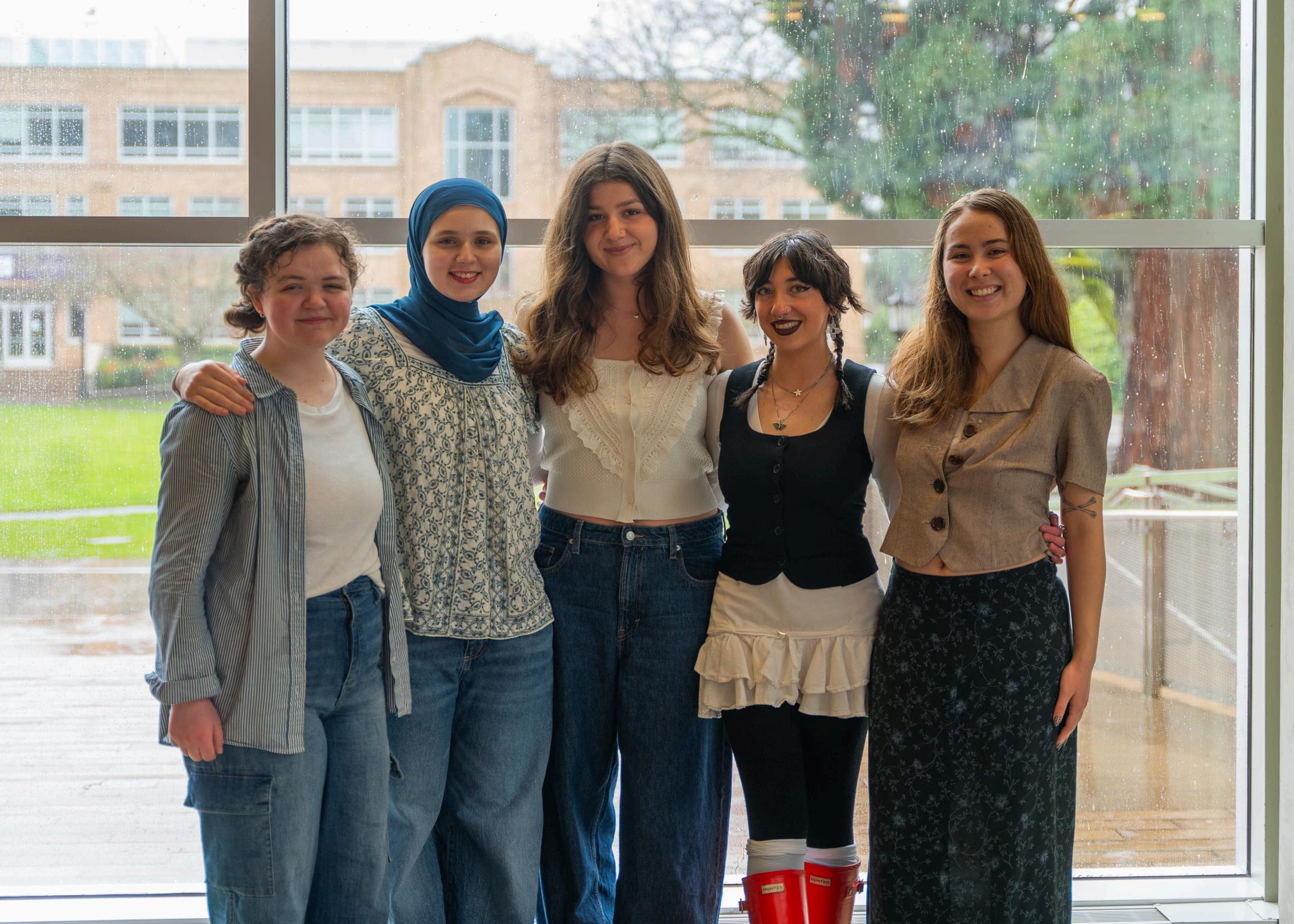
Writers is never a singular effort, and we are immensely grateful for the support of the following people:
Professor John McDonald, our trusty faculty advisor, for giving us constant encouragement while simultaneously allowing us the space to make and fix our own mistakes.
Our contributors, for their amazing poems, musings, and art pieces. Writers simply would not exist without you and is better because of you.
And, most emphatically, the Spring 2025 Writers Editorial Board, for their adaptability, creativity, passion, and patience.
Writers Magazine accepts submissions of original creative work by current students of the University of Portland. These works include but are not limited to short prose, poetry, short plays, photography, visual arts, and cartoons.
All submissions are evaluated by the editorial board. Submissions are kept anonymous throughout the evaluation process.
